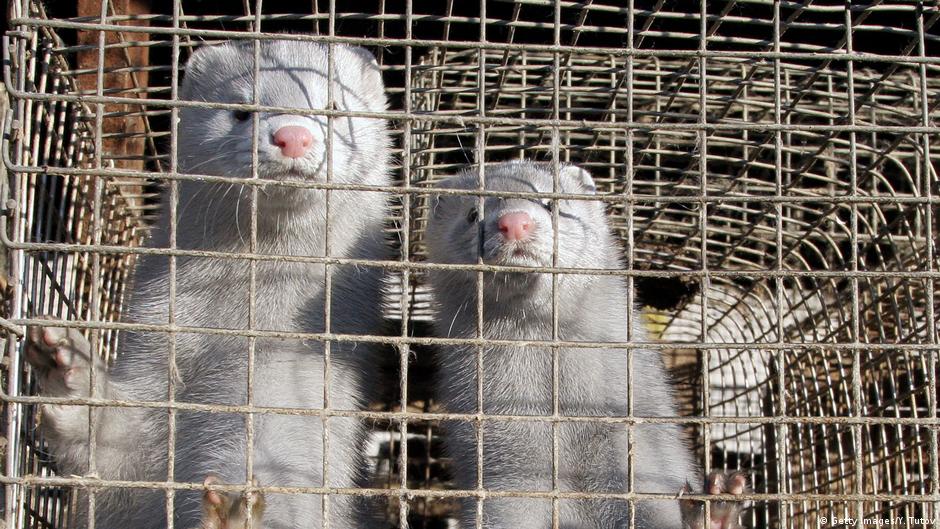
Mink pass coronavirus to humans in the Netherlands
At least two people have caught the coronavirus from mink in the Netherlands, in probably the first mink-to-human transmission cases. The risk of infection outside mink farms is "negligible," Dutch officials said.
The Dutch government on Monday said that it was "highly likely" that a person had been infected with the coronavirus by a mink, following a similar case last week.
Mink are bred for their fur at some 155 farms across the country. The authorities detected infected animals at four such locations, Agriculture Minister Carola Schouten said in a letter to parliament. At three out of four farms, a sick human was thought to be the source of the infection among the animals, while officials were still investigating the cause at the fourth one, the minister said.
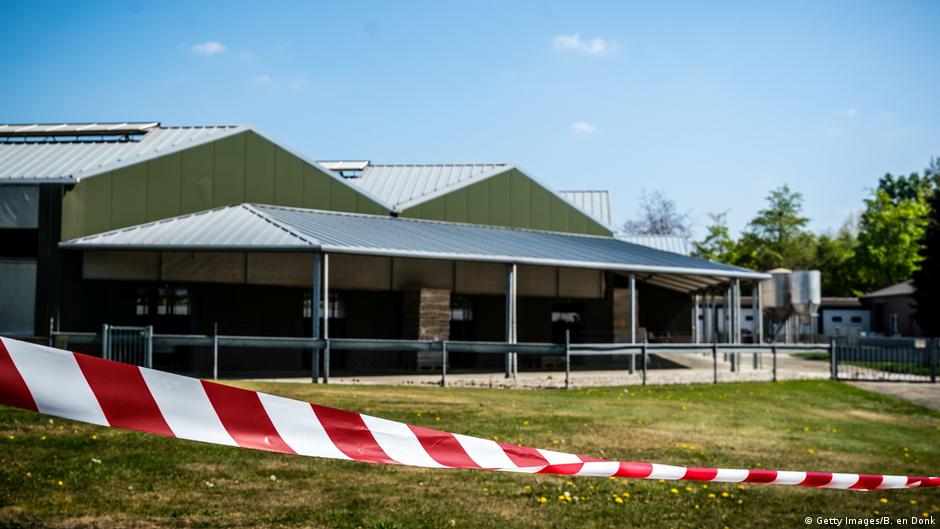
The mink farms are set to close in 2023 due to a law passed before the coronavirus outbreak. Amid the latest developments, some veterinarians accused Schouten of trying to downplay the risk of the animal-to-human infection and pressured the government to clear out heavy-hit farms. However, Schouten has so far rejected the push. Addressing Dutch lawmakers on Monday, Schouten said the risk of humans getting infected outside farms was "negligible."
Dutch pets confirmed infected
Reports of humans infecting their animals, particularly cats and dogs, have appeared in various countries across the world since the beginning of the current pandemic. At least four house pets tested positive in the Netherlands last month. Minister Schouten has urged COVID-19 patients to "avoid contact with their animals."
However, the latest mink-to-human transmission was virtually unique, said the head of the country's health insitute, Jaap van Dissel, on Monday.
"This is the first time we've found, at least we've shown that it's likely, that in two cases the infection has gone from animal to human," he said. "Of course the original source of infection in China was also very likely animals," he added.
dj/msh (dpa, Reuters)

To pet, or not to pet?
Researchers at the Harbin Veterinary Research Institute in China have found that the novel coronavirus, also known as COVID-19, can be transmitted between cats. Domesticated house cats are also able to pass the virus on to members of their species, but not very easily, said Hualan Chen, a lead researcher of the - not peer reviewed -paper which was published in "bioRxiv" on March 31.
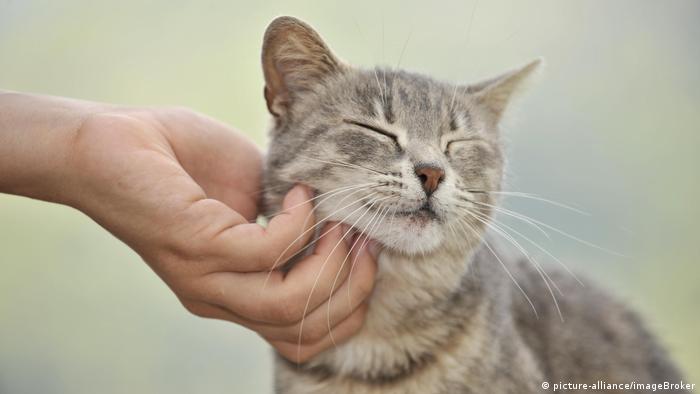
Don't worry
But cat owners shouldn't panic. Felines quickly form antibodies to the virus, so they aren't contagious for very long. Domestic cat owners with preexisting medical conditions, or the elderly, should temporarily restrict where their cats are able to wander. Healthy people should wash their hands thoroughly after patting them.
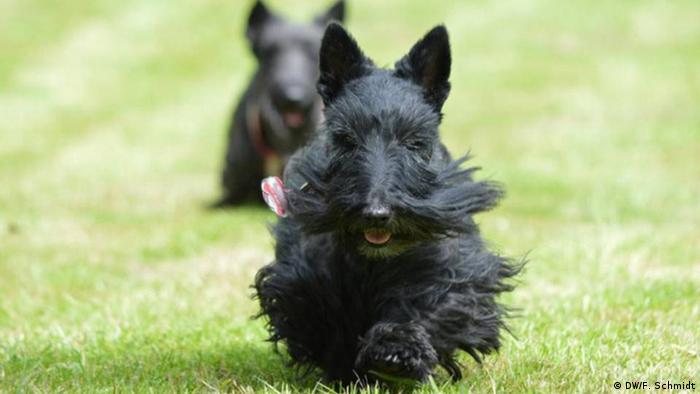
Dogs are safe
Unlike cats, the virus is unable to replicate easily in dogs, the researchers report. So you're all clear when it comes to walking or training your pooch.
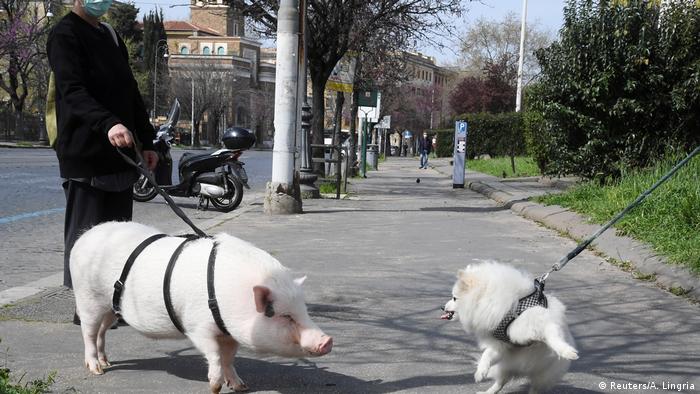
Who's infecting who?
This domesticated pig out walking the streets of Rome doesn't need to be afraid of any dogs. And, the dog needn't be afraid of its grunting opponent, either. Pigs aren't considered a natural reservoir for the coronavirus, the veterinarians discovered.
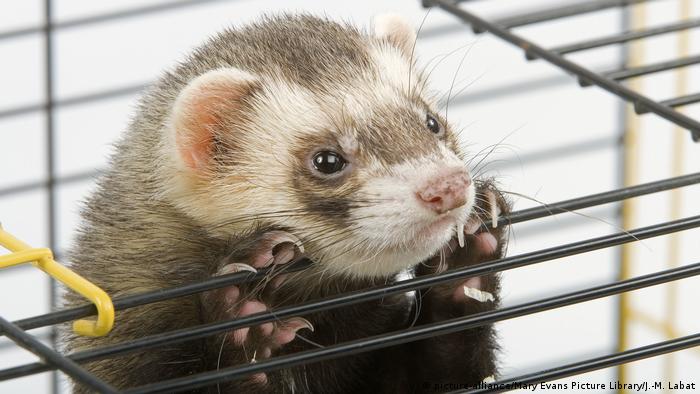
Quarantine for ferrets
Things are different for the members of the Mustelidae family. Hualan Chen also researched ferrets, and found that SARS-CoV-2 is able to reproduce in these animals, just as in cats. The transmission between the animals occurs through respiratory droplets. Researchers found the virus on swabs taken from the throat and nose of ferrets and cats, but were unable to detect any lung infections.
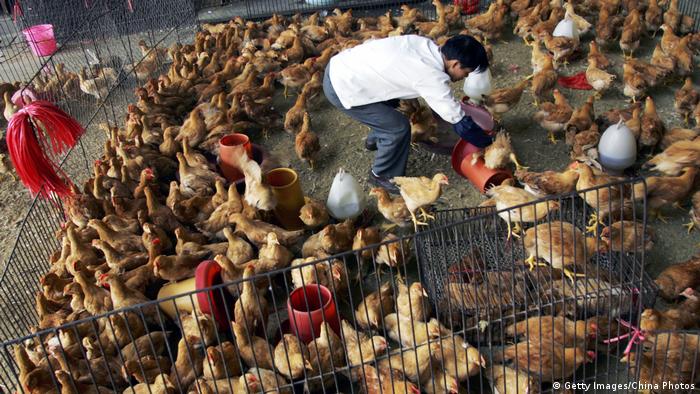
Are chickens a danger to humans?
Experts have given the all-clear for people who handle poultry, such as this trader in Wuhan, China, where scientists believe the first case of the virus emerged late last year. Humans have nothing to worry about, as chickens are practically immune to the SARS-CoV-2 virus, as are ducks and other bird species.
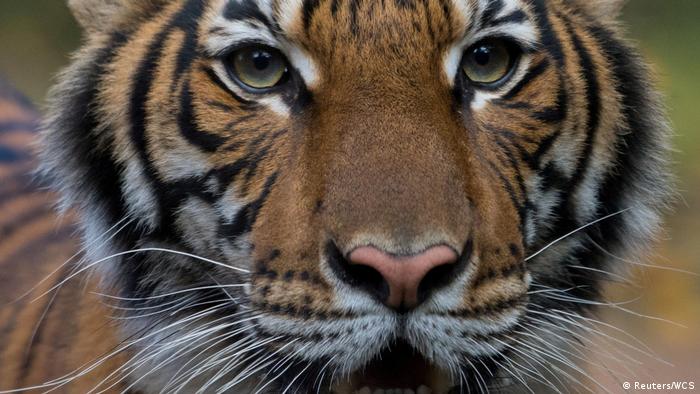
When humans are a threat
People can be infected by animals, but the same can also happen in reverse. Four-year-old Malayan tiger Nadia tested positive for COVID-19 recently at the Bronx Zoo in New York. "It's the first time, to our knowledge, that a [wild] animal has gotten sick from COVID-19 from a person," Paul Calle, the zoo's chief veterinarian, told "National Geographic" magazine.
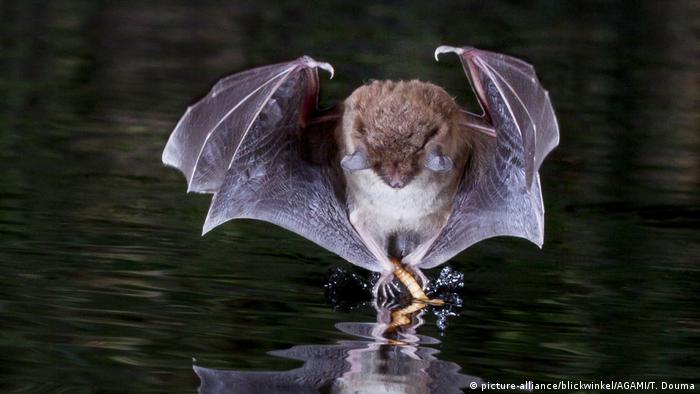
Have bats been wrongly accused?
Bats are considered the most-likely carrier of SARS-CoV-2, but veterinarians believe that in December 2019, another species must have existed in Wuhan as an intermediate host between them and humans. Could it have been ferrets or cats?
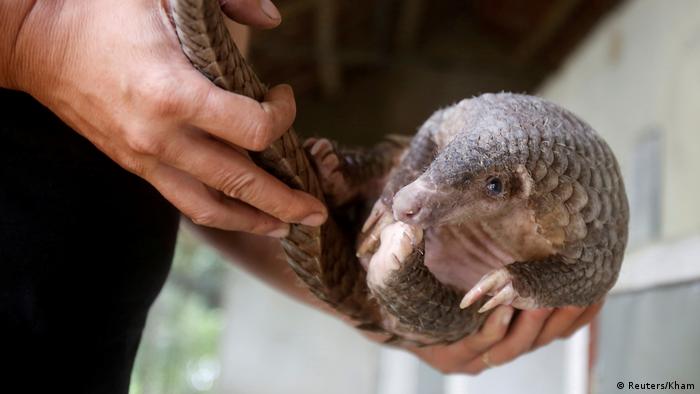
Or perhaps this little suspect?
Pangolins are also under suspicion for transmitting the virus. Researchers from Hong Kong, China and Australia have detected a virus in a Malaysian Pangolin that shows stunning similarities to SARS-CoV-2.
Author: Fabian Schmidt